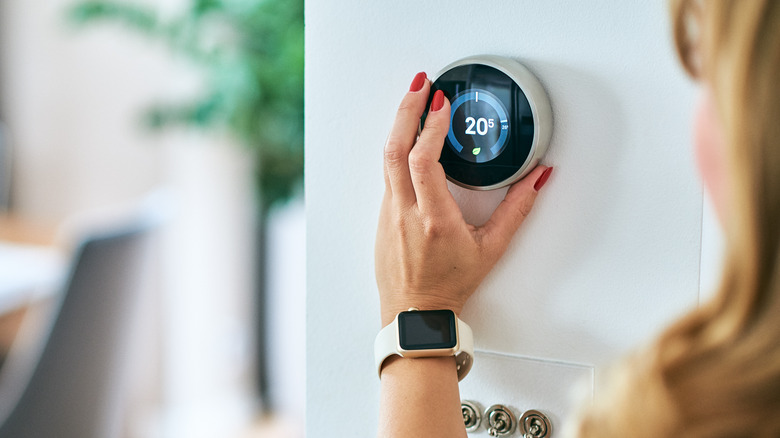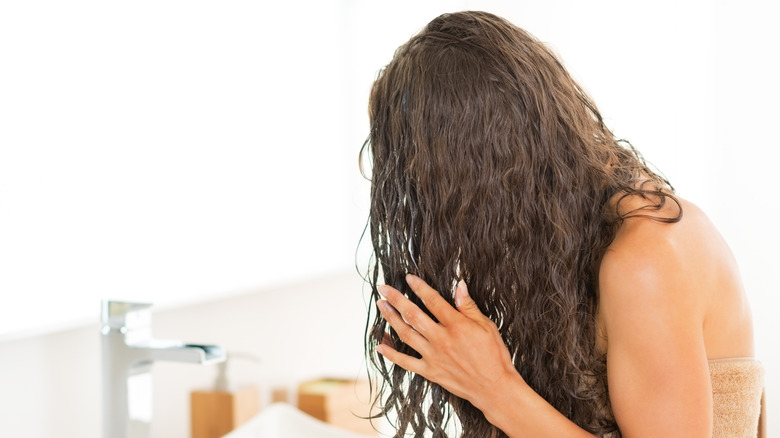The Worst Things To Do To Your Hair During Winter
There are a billion reasons why we have a love/hate relationship with winter. Winter means it's time to break out snuggly sweaters or get cozy with a cup of hot cocoa (marshmallows are optional). It's definitely a great time to take a cue from animal friends and hibernate as the cold weather takes its course. But the cold weather (and the dry air from indoor heating) also means its a challenging time to keep your hair and body at its best.
The good news is there are a few steps you can take to keep your hair in tip-top shape. The bad news is that it does take a bit of effort, but that being said, taking the extra steps to protect your hair will pay off when the time comes to shed your layers and step out into spring.
Turn down the heat
Some of us are terrified of catching a chill, and because of that, our first defense might be to turn up the heat — in your car, at home, or at the office — but all that dry heat can also suck the moisture out of our hair, and that means out-of-control locks, static and frizz, and breakage. "The last thing you should do to your hair in the winter is contribute to that dehydration with excessive heat appliance," hairstylist Michelle Cleveland tells StyleCaster.
Oh, and stay away from hot showers too, no matter how great they might feel — your skin and hair will thank you. Hot showers are not only responsible for drying out skin, but they also damage the surface and can lead to problems like skin inflammation (via BCM).
Then there's what the hot shower can do to your hair. "Superhot water is drying all around, for your skin, scalp and, of course, the hair," haircare professional Jehnna Mahoney tells HuffPost. "Rinsing your hair with moderately hot or warm water helps to maintain hair health without freezing you out of the shower and won't cause further dryness."
Wet hair outdoors in winter is a no-no
Stepping outside with wet hair is quick and convenient — and while it's fine (well, sort of) in the summer, you could be condemning your locks if you do the same thing in the wintertime. "Think about it — when water turns to ice, it expands," Mahoney says. "When the hair is wet and you go outside in freezing temperatures, the water crystallizes and expands, physically breaking the hair."
To avoid the grief and save time, professionals recommend you wash your hair in the evening and use a protecting spray before you use a hair dryer. Even if your hair isn't normally brittle and dry, go straight for formulations meant for curly hair, because those products can both hydrate and hold whatever style you're going for.


